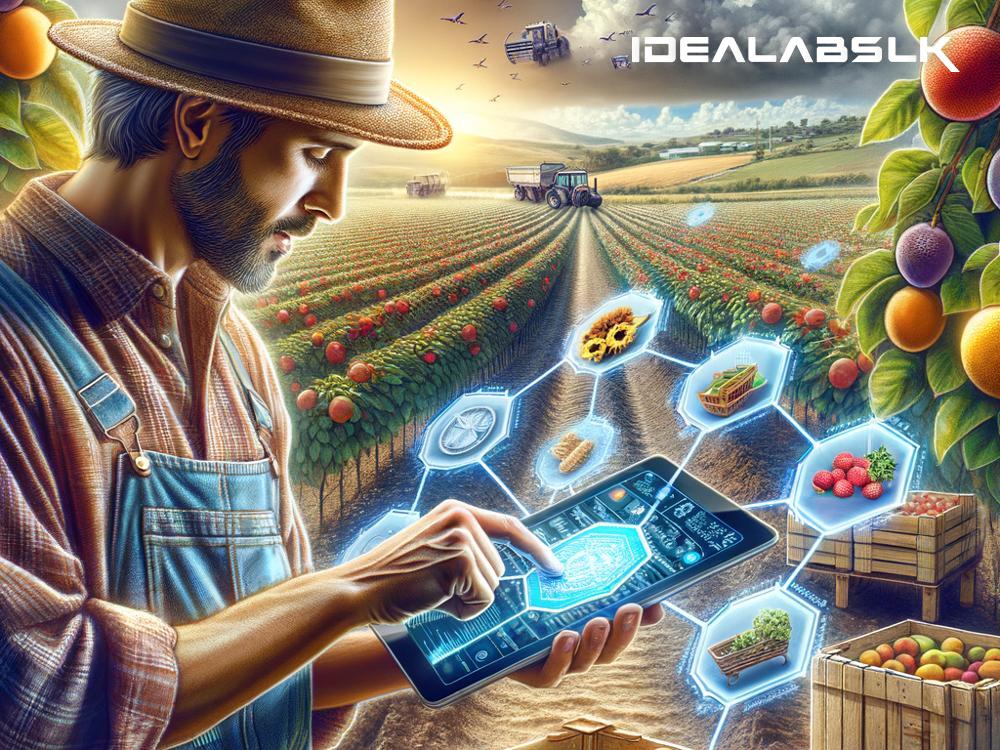Unraveling the Blockchain Mystique: Your Food's Journey from Farm to Table
Have you ever paused while enjoying your favorite dish and pondered over its journey before it landed on your plate? In our globalized world, ingredients often travel thousands of miles from their origin to reach our kitchens. From exotic spices and coffee to everyday fruits and vegetables, the farm-to-table process for imported goods is complex and, until recently, opaque. However, there's a revolutionary technology reshaping this narrative — Blockchain.
What's Blockchain, Anyway?
Imagine a magic notebook that everyone can write in but no one can erase anything. Blockchain is somewhat like that magic notebook but in the digital world. It's a secure, shared ledger that records transactions in a way that is transparent, tamper-proof, and accessible to everyone involved. This technology, famous for powering cryptocurrencies like Bitcoin, is now paving new paths for various industries, especially food traceability.
Blockchain to the Rescue in Food Traceability
Transparency is a big deal. As consumers become more health-conscious and socially aware, there's a growing demand for knowing exactly where our food comes from and how it's handled. This is where blockchain comes in as a superhero. By applying its principles to the farm-to-table journey, it promises a level of transparency we've never seen before.
Digging Deeper: How Does It Work?
Imagine a bag of coffee beans. From the moment these beans are harvested in a far-off country, until they reach your local café, numerous steps occur — processing, shipping, roasting, and packaging. With blockchain, each step is recorded in that magic, unerasable notebook.
When farmers harvest the beans, details such as the harvest date, location, and even the weather can be recorded. As these beans change hands, each party — from the shipper, the roaster, to the retailer — adds their own data to the blockchain. This makes the entire journey transparent and traceable.
The Perks of Blockchain in Farm to Table
1. Authenticity and Quality Assurance
Ever wondered if the 'organic' tag on your food is genuine? Blockchain can verify that. By tracking every step of the journey, it ensures the claims made about a product, such as being organic or fair trade, are accurate. This adds a layer of trust and quality assurance for consumers.
2. Safety and Recall Efficiency
In the event of a food safety issue, identifying the source and possibly contaminated products can be like finding a needle in a haystack. Blockchain dramatically speeds up this process, potentially saving lives and preventing widespread panic by quickly pinpointing the problem's origin.
3. Combatting Food Fraud
Food fraud is a pressing issue, costing the global food industry an estimated $40 billion annually. Blockchain's transparent nature makes it significantly harder for fraudsters to manipulate the system, protecting both consumers and honest businesses.
Real-life Applications: Blockchain in Action
Several companies and consortia are already harnessing blockchain to ensure transparency in their supply chains. For instance, IBM's Food Trust network collaborates with major industry players like Walmart and Nestlé to trace food products' origins and ensure their integrity. Similarly, small-scale coffee roasters are using blockchain to guarantee the authenticity and fair trade status of their beans, providing consumers with a unique QR code that tells the product's full story.
A Taste of the Future
While blockchain in the farm-to-table journey presents a promising vista of transparency and trust, it's not without challenges. Implementation costs, and the need for robust industry-wide standards are significant hurdles. Yet, as technology continues to evolve and stakeholders recognize its potential, blockchain adoption in tracing imported goods from farm to table is likely to become more widespread.
In a world where consumers are increasingly concerned about the origins and safety of their food, blockchain offers a beacon of hope. It not only empowers consumers with knowledge but also promotes ethical and sustainable farming practices globally. So, the next time you sip on that aromatic cup of coffee or indulge in a decadent chocolate bar, remember, blockchain might soon let you journey with those beans or cocoa nibs, all the way from a distant farm to your delighted taste buds.
The farm-to-table journey for imported goods is on the brink of a revolution, courtesy of blockchain technology. It's redefining transparency, fostering trust, and ensuring the integrity of our food in ways we'd only imagined. As this technology matures and becomes more accessible, the expectation is not just for better food traceability but for a more connected and ethical global food system. Welcome to the future of food, where every bite tells a story, and blockchain is the narrator.

